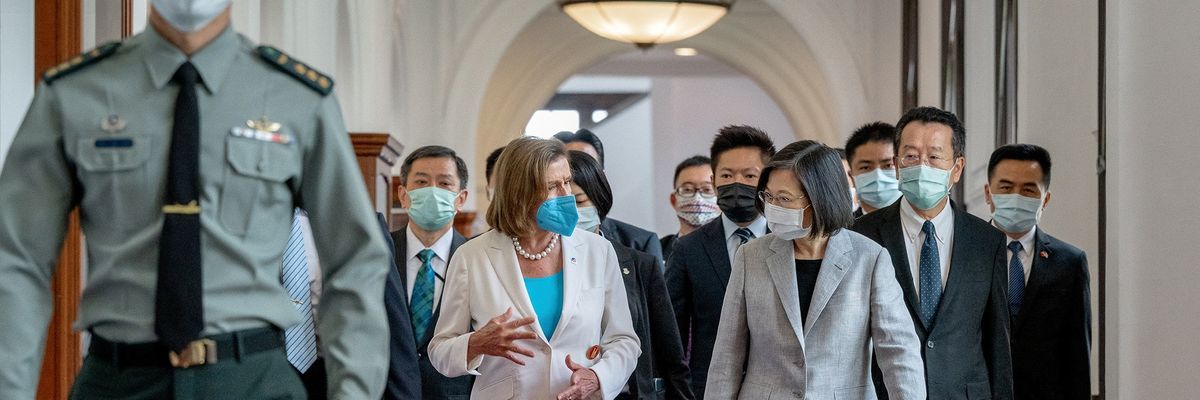The House today passed the Taiwan Enhanced Resiliency Act (TERA, formerly the Taiwan Policy Act) as part of the mammoth (4,408 pages) National Defense Authorization Act.
TERA has some positive elements, including much needed efforts to get Taiwan to significantly increase its defense capabilities. Some of the most negative measures in the original bill were also left out, including a set of highly provocative “findings” that defined Taiwan as a critical strategic asset for the United States.
Unfortunately, however, TERA as passed still contains elements that reinforce the existing one-sided and almost purely militaristic approach to the Taiwan problem. There is no recognition of the highly negative, interactive U.S.-China dynamic over Taiwan (and relations in general) that is moving us steadily toward conflict.
For example, to read TERA, you would never know that many of China’s most troubling actions are at least in part motivated by Washington’s steady erosion of the credibility of its One China policy.
Instead, there are provisions that move the U.S. closer to establishing an official relationship with Taiwan. There is no longer a clear line in only supporting Taiwan’s entrance into international organizations that do not require statehood, for example. The legislation also endorses recent U.S. efforts to discourage nations from switching their diplomatic recognition from Taiwan to China. This is an absurd policy given the fact that the United States has itself made such a switch. The U.S. steered well clear of all such behavior in the past, but apparently no longer.
In addition, despite legislators having removed the unnecessarily provocative “findings” from the act, co-Author Sen. Bob Mendendez (D-N.J.), in his introduction to the legislation, describes Taiwan as the “beating heart” to the U.S. Indo-Pacific strategy. This reinforces the highly dangerous notion that keeping Taiwan separate from China under any conditions is a strategic necessity for the United States.
Such a stance, if clearly reflected in Washington policy, would put us more, not less, firmly on the path to conflict with China over Taiwan. This is because no amount of U.S. military deterrence and close relations with Taiwan will deter today’s much stronger China from resorting to war if it concludes that America is actively seeking to permanently separate Taiwan from China.
A policy of opposition to even peaceful unification is diametrically opposed to the One China policy (which accepts such the possibility of peaceful unification, and would thus give Beijing the incentive to entirely abandon its long-standing preference for peaceful unification).
In short, while likely serving to significantly augment Taiwan’s defense capabilities and pushing back against Chinese pressure and influence, the TERA reinforces much of the dangerous political elements of U.S Taiwan policy. In doing so, it will not appreciably reduce the possibility of a war with China over Taiwan.
















